Latest
2024
Jul
Jun
May
Apr
Mar
Feb
Jan
2023
Dec
Nov
Oct
Sep
Aug
Jul
Jun
May
Apr
Mar
Feb
Jan
2022
Dec
Nov
Oct
Sep
Aug
Jul
Jun
May
Apr
Mar
Feb
Jan
2021
Dec
Nov
Oct
Sep
Aug
Jul
Jun
May
Apr
Mar
Feb
Jan
2020
Dec
Nov
Oct
Sep
Aug
Jul
Jun
May
Apr
Mar
Feb
Jan
2019
Dec
Nov
Oct
Sep
Aug
Jul
Jun
May
Apr
Mar
Feb
Jan
2018
Dec
Nov
Oct
Sep
Aug
Jul
Jun
May
Apr
Mar
Feb
Jan
2017
Dec
Nov
Oct
Sep
Aug
Jul
Jun
May
Apr
Mar
Feb
Jan
2016
Dec
Nov
Oct
Sep
Aug
Jul
Jun
May
Apr
Mar
Feb
Jan
2015
Dec
Nov
Oct
Sep
Aug
Jul
Jun
May
Apr
Mar
Feb
Jan
2014
Dec
Nov
Oct
Sep
Aug
Jul
Jun
May
Apr
Mar
Feb
Jan
2013
Dec
Nov
Oct
Sep
Aug
Jul
Jun
May
Apr
Mar
Feb
Jan
2012
Dec
Nov
Oct
Sep
Aug
Jul
Jun
May
Apr
Mar
Feb
Jan
2011
Dec
Nov
Oct
Sep
Aug
Jul
Jun
May
Apr
Mar
Feb
Jan
2010
Dec
Nov
Oct
Sep
Aug
Jul
Jun
May
Apr
Mar
Feb
Jan
2009
Dec
Nov
Oct
Sep
Aug
Jul
Jun
May
Apr
Mar
Feb
Jan
2008
Dec
Nov
Oct
Sep
Aug
Jul
Jun
May
Apr
Mar
Feb
Jan
2007
Dec
Nov
Oct
Sep
Aug
Jul
Jun
May
Apr
Mar
Feb
Jan
2006
Dec
Nov
Oct
Sep
Aug
Jul
Jun
May
Apr
Mar
Feb
Jan
2005
Dec
Nov
Oct
Sep
Aug
Jul
Jun
May
Apr
Mar
Feb
Jan
2004
Dec
Nov
Oct
Sep
Aug
Jul
Jun
May
Apr
Mar
Feb
Jan
2003
Dec
Nov
Oct
Sep
Aug
Jul
Jun
May
Apr
Mar
Feb
Jan
2002
Dec
Nov
Oct
Sep
Aug
Jul
Jun
May
Apr
Mar
Feb
Jan
2001
Dec
Oct
Sep
Aug
Jul
Jun
May
Apr
Mar
Feb
Friday, December 31, 2021
Music Week
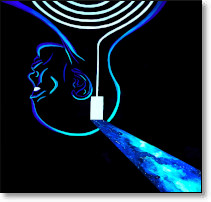 |
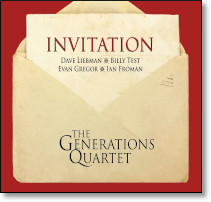 |
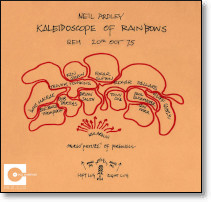 |
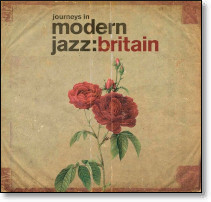 |
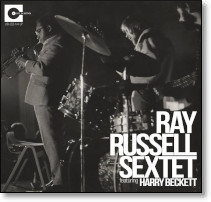 |
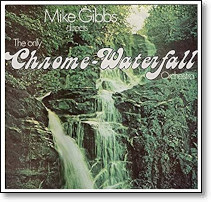 |
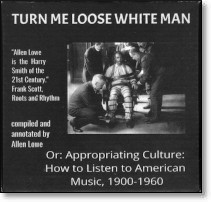 |
Expanded blog post, December archive (final).
Tweet: Music Week: 68 albums, 6 A-list (+1), extended the week a couple days to square off the month and year, and good riddance to all that; some more reflections back on Jazz Critics Poll and EOY lists.
Music: Current count 37011 [36943] rated (+68), 126 [125] unrated (+1).
Final Update: December 31: Earlier versions below. The initial post (Dec. 28) was just a placeholder, a day after the expected Music Week date. I was still very busy working on Jazz Critics Poll, but I also recalled holding past end-December Music Weeks open to make a clean break of the year. I added an update on Dec. 29 with links to Jazz Critics Poll, so scroll down to get to those. In the two days since, I've been monitoring Poll reaction (although not very obsessively or assiduously), while adding a few stragglers to the reviews below, and generally decompressing.
I should do a debriefing on the poll at some point, but fear that if I start now I won't get anything out tonight. I would like to refer you to this post by Amir ElSaffar on Facebook. Also, this one by publicist Matt Merewitz, who notes his role in hooking us up with Arts Fuse. I was fully prepared to run the poll on my own, with no outside sponsorship, so Arts Fuse wasn't a make or break deal. But they were more helpful than I expected, and I've enjoyed working with them. I also have to admit that they've gotten us more eyes and clicks than would have been the case had we only had my website.
I reckon it's safe here to point out that I dropped a few lines from my essay that some readers considered "sour grapes" over our previous sponsor, NPR:
When NPR declined to support the Jazz Critics Poll this year, they explained their preference for "a mosaic of outlooks" over "rankings," but the half-dozen essays they offered instead could have used a better grasp of data. For instance, one writer was bewildered that "there wasn't a new face as consensus critical darling this year," but the Poll showed there was a clear answer: James Brandon Lewis. Another writer expounded on The Wisdom of Our Elders without mentioning Wadada Leo Smith, who celebrated his 80th year with 5 highly regarded releases, totaling 12 CDs.
The actual line I was bouncing off of was their less-than-official explanation for dropping Jazz Critics Poll:
What we've set out to accomplish here has less to do with album rankings than reflecting on some form of lived experience: presenting a mosaic of outlooks, rather than a model of consensus.
I suspect that the real reason for dropping us was simply that they wanted to cover jazz like they cover other genres, and we represented this external data-driven appendage doing something very different, an approach they weren't using anywhere else. I can see the logic of that, and I don't doubt their right to direct their coverage. But I did find it interesting that as soon as they turned up their noses out poll, they committed a number of gaffes that would have been obvious to anyone on first glance at the data.
Data analysis isn't easy. It's certainly not something that comes naturally to most people. Even in my piece, I tended to just point out isolated bits that struck me as significant, rather than digging through it all systematically. That's partly because I don't have the tools set up, and partly because we're not collecting nearly as much data as I'd like to see. I offered myself up as an example, as someone who listened to 700 new jazz albums this year -- a fairly basic figure that I don't have for any other jazz critic, although I'd guess that the range is something like 200-1000 (I've come close to the upper bound in previous years).
I should note that I've made one significant change to my Jazz and Non-Jazz EOY lists: five A-list records now appear in both, so 73 + 58 = 126. The records were ones I had originally put in Non-Jazz (Anthony Joseph, Maria Muldaur, Jaubi, Theon Cross, Ruth Weiss; four of those were non-jazz artists in front of jazz bands, the fifth is a jazz artist playing electronica). I did this because I was writing about the increasingly blurry line between jazz and non-jazz, and realized that those five were examples I wanted to buttress my case with. That's helped to shift the Jazz/Non-Jazz spit in the former's favor.
I'm surprised I didn't find more A-list Non-Jazz this week, but new Jazz fell off as well -- and frankly, the EOY list aggregate isn't kicking up a lot of interesting candidates. I've heard everything down to 90-92 (Coral, Deafheaven, Gojira). I've looked for but haven't found jazz albums that finished {19, 35, 50, 54, 79} in the poll; the highest-rated one I haven't looked for yet is Kate McGarry at 84. While that search was frustrating, I took a fairly deep dive into the Jazz in Britain Bandamp stash, so for a while I had many more new reissues/historical than new releases. We're also seeing vinyl/digital reissues of 1960s British jazz classics from Decca. As a Penguin Guide devotee, I've heard of most of these names, so exploring their lost albums has been interesting.
Should get back on schedule with a short Music Week on Monday. I haven't done the December Streamnotes indexing, so need to work on that as well. Also need to think about some New Years changes. This has been a tough year for me, and not much future bodes better.
Update: December 29: The 16th Annual Jazz Critics Poll results are now public. The poll was started by Francis Davis at the Village Voice in 2006, with 30 critics polled. Davis has kept the poll going ever since, through moves to Rhapsody (2 years) then NPR (for 8 years) and The Arts Fuse this year. At the time, I was writing a Jazz Consumer Guide column for the Voice, so got an invite to vote. I got further involved a couple years later, when Voice editor Rob Harvilla asked me to host the ballots. For a number of years, Davis would collect and tabulate everything, then dump it on me after the poll closed, requiring a lot of error-checking. Eventually I developed a few programs to simplify data entry and automate formatting of the web pages. From that point, errors were reduced to a few of my typos, easily fixed. This year we were able to tabulate results as each ballot came in, and return formatted ballots to voters so they could flag mistakes way before the results were announced. This system is also nicely scalable: this year we're up to a record 156 voters. At some point I would expect adding voters would start averaging out the results, but thus far we just keep adding diversity, making the poll more useful and valuable than ever.
We wrote two essays to accompany the results. Those essays were initially published at Arts Fuse, along with the top results. (At some point, I'll add them to the JCP website. Eventually, I hope to have all of the poll materials archived there.) Francis Davis did his usual fine job of summarizing the results, reflecting on the year in jazz, and expanding on his own ballot, in The 2021 Jazz Critics Poll: Only the Best. I wrote a second essay, focusing more on the mechanics of the poll, on what gets measured and what doesn't, and what the more marginal data in the poll reveals, in Behind the 2021 Jazz Critics Poll: A Tool for the Times. We also revived an early JCP tradition and published a R.I.P. 2021's Jazz Notables.
I still have a bit more work to do on the website. I need to add some footnotes to the results, and to add the essays to the pulldown menus. Not sure what else. I keep thinking I should be able to generate voter lists for each album, so I may still fiddle with that. I also want to make it easier to compare results over years, but that will have to be a longer-term project.
I'm still not ready to wrap up this Music Week, though it wouldn't hurt to drop another album cover. I spent a lot of time last week listening to the Ron Mathewson archival tapes, which led me to more early modernist British jazz.
Initial Post: December 28: Music Week will be delayed for a day or two (or three) this week. I'm still working on an essay to go with the 16th Annual Jazz Critics Poll, and I'm having a horrible time trying to wrap it up. The Poll results and a Francis Davis essay will be published by The Arts Fuse real soon now, at which point my Jazz Critics Poll website will go live, with complete results, and complete ballots from our 156 distinguished critics.
When I know more, I'll kick out a tweet, then update this page. By the way, this isn't the first time I've extended the last Music Week of the year. It just seems tidier to wrap up the year on the last day. Although circumstances have made this year a good deal more stressful than in the past. Gloomy, even.
New records reviewed this week:
- The Baylor Project: Generations (2021, Be a Light): [sp]: B+(***)
- Melanie Charles: Y'all Don't (Really) Care About Black Women (2021, Verve): [r]: B+(***)
- The Chisel: Retaliation (2021, La Vida Es Un Mus Discos): [r]: B+(*)
- Theon Cross: Intra-I (2021, New Soil): [sp]: A-
- Steven Feifke Big Band: Kinetic (2019 [2021], Outside In Music): [r]: B+(*)
- The Generations Quartet [Dave Liebman/Billy Test/Evan Gregor/Ian Froman]: Invitation (2021, Albert Murray/John Aveni): [r]: A-
- Hutch Harris: Suck Up All the Oxygen (2021, self-released, EP): [bc]: B+(**)
- Abdullah Ibrahim: Solotude: My Journey, My Vision (2021, Gearbox): [r]: B+(**)
- Il Sogno: Graduation (2021, Auand/Gotta Let It Out): [sp]: B+(**)
- Jungle: Loving in Stereo (2021, Awal): [r]: B+(*)
- Masabumi Kikuchi: Hanamichi: The Final Studio Recording (2013 [2021], Red Hook): [sp]: B+(*)
- Katy Kirby: Cool Dry Place (2021, Keeled Scales): [r]: B+(*)
- Mon Laferte: 1940 Carmen (2021, Universal Music Group): [r]: B+(***)
- Jihye Lee Orchestra: Daring Mind (2020 [2021], Motéma): [sp]: B+(**)
- Jlin: Embryo (2021, Planet Mu, EP): [r]: B+(*)
- Lingua Ignota: Sinner Get Ready (2021, Sargent House): [r]: B-
- Mach-Hommy: Balens Cho (2021, Griselda, EP): [r]: B+(**)
- Rachel Musson: Dreamsing (2020 [2021], 577): [bc]: B+(**)
- Oz Noy: Snapdragon (2020, Abstract Logix): [sp]: B+(*)
- Jeff Parker: Forfolks (2021, International Anthem): [bc]: B+(*)
- Chris Pierce: American Silence (2021, Pierce): [r]: B+(*)
- Portico Quartet: Monument (2021, Gondwana): [r]: B+(*)
- Enrico Rava: Edizione Speciale (2019 [2021], ECM): [r]: B+(***)
- Stephen Riley: I Remember You (2019 [2021], SteepleChase): [r]: B+(***)
- Jana Rush: Painful Enlightenment (2021, Planet Mu): [r]: B
- Elori Saxl: The Blue of Distance (2021, Western Vinyl): [r]: B+(*)
- Serengeti: Have a Summer (2021, self-released): [sp]: B
- Shame: Drunk Tank Pink (2021, Dead Oceans): [r]: B+(***)
- Skerebotte Fatta: Appaz (2020 [2021], ForTune): [bc]: B+(***)
- Rejjie Snow: Baw Baw Black Sheep (2021, Honeymoon/+1): [r]: B+(**)
- Sonic Liberation Front: Moon Rust Red Streets (2020 [2021], High Two): [sp]: B+(**)
- Tyshawn Sorey/Alarm Will Sound: For George Lewis/Autoschediasms (2019-20 [2021], Cantaloupe, 2CD): [r]: B+(*)
- Spellling: The Turning Wheel (2021, Sacred Bones): [r]: B+(*)
- Throttle Elevator Music: Final Floor (2021, Wide Hive): [r]: B+(**)
- Valerie June: The Moon and Stars: Prescription for Dreamers (2021, Fantasy): [r]: B+(*)
- Morgan Wade: Reckless (2021, Ladylike): [r]: B+(***)
- Tierra Whack: Rap? (2021, Interscope, EP): [sp]: B+(**)
- Tierra Whack: Pop? (2021, Interscope, EP): [sp]: B+(**)
- Tierra Whack: R&B? (2021, Interscope, EP): [sp]: B+(*)
- Jamire Williams: But Only After You Have Suffered (2021, International Anthem): [sp]: B+(*)
- Willow: Lately I Feel Everything (2021, MSFTS/Roc Nation): [r]: B+(*)
- Young Thug: Punk (2021, YSL/300 Entertainment/Atlantic): [sp]: B+(***)
- Brandee Younger: Somewhere Different (2021, Impulse): [sp]: B+(**)
Recent reissues, compilations, and vault discoveries:
- Hasaan Ibn Ali: Retrospect in Retirement of Delay: The Solo Recordings (1962-65 [2021], Omnivore): [r]: B+(**)
- Neil Ardley & the New Jazz Orchestra: Jazz Calendar: Olympic Studios '66 (1966 [2020], Jazz in Britain, EP): [bc]: B+(*)
- Neil Ardley: Kaleidoscope of Rainbows: QEH, 20th Oct 75 (1975 [2021], Jazz in Britain, 2CD): [bc]: A-
- Ian Carr Double Quintet: Solar Session (1970 [2021], Jazz in Britain): [bc]: B+(**)
- The Allen Cohen Big Band: The Oracle [The Ron Mathewson Tapes Vol. 4] (1968 [2020], Jazz in Britain, EP): [bc]: B+(*)
- Mike Gibbs: Revisiting Tanglewood 63: The Early Tapes (1970 [2021], Jazz in Britain): [bc]: B+(**)
- Group Sounds Four & Five: Black and White Raga (1965-66 2020], Jazz in Britain): [bc]: B+(**)
- Joe Harriott: Chronology: Live 1968-69 (1968-69 [2020], Jazz In Britain): [bc]: B+(**)
- Joe Harriott Quintet: Formation: Live '61 (1961 [2021], Jazz in Britain, EP): [bc]: B+(*)
- Emmylou Harris and the Nash Ramblers: Ramble in Music City: The Lost Concert (1990 [2021], Nonesuch): [r]: B+(**)
- The Tubby Hayes Quartet: Free Flight [The Ron Mathewson Tapes Vol. 3] (1972 [2020], Jazz in Britain, 2CD): [bc]: B+(**)
- Tubby Hayes Quartet: The Complete Hopbine '69 (1969 [2021], Jazz in Britain, 2CD): [bc]: B+(***)
- Allan Holdsworth/Ray Warleigh/Ron Mathewson/Bryan Spring: Warleigh Manor: The Ron Mathewson Tapes Vol. 1 (1979 [2020], Jazz in Britain): [bc]: B+(**)
- Journeys in Modern Jazz: Britain (1965-1972) (1965-72 [2021], Decca, 2CD): [r]: A-
- Ron Mathewson: Memorial (1968-76 [2020], Jazz in Britain): [bc]: B+(***)
- Mathewson & Mathewson: Blow (1976 [2020], Jazz in Britain): [bc]: B
- Lee Morgan: The Complete Live at the Lighthouse (1970 [2021], Blue Note, 8CD): [r]: B+(***)
- The New Jazz Orchestra: Le Dejeuner Sur L'Herbe (1969 [2021], Decca): [r]: B+(***)
- Mike Osborne & Friends: Live at the Peanuts Club (1975-76 [2020], Jazz in Britain): [bc]: B+(***)
- PAZ/The Singing Bowls of Tibet/Allan Holdsworth: Live in London '81: The Ron Mathewson Tapes Vol. 2 (1981 [2020], Jazz in Britain, EP): [bc]: B
- Plastic People of the Universe: Magicke Noci 1997 (1997 [2021], Guerilla): [sp]: B+(***)
- Elvis Presley: Elvis: Back in Nashville (1971 [2021], RCA/Legacy, 4CD): [r]: B-
- Don Rendell/Ian Carr Quintet: Blue Beginnings (1964 [2021], Jazz in Britain): [bc]: B+(**)
- The Ray Russell Quartet: Spontaneous Event: Live Vol. 1: 1967-69 (1967-69 [2020], Jazz in Britain): [bc]: B+(***)
- Ray Russell Sextet: Forget to Remember: Live Vol. 2: 1970 (1970 [2021], Jazz in Britain): [bc]: A-
- Splinters: Inclusivity (1972 [2021], Jazz in Britain, 3CD): [bc]: B+(***)
- Mike Taylor Quartet: Mandala (1965, Jazz in Britain): [bc]: B+(***)
Old music:
- Mike Gibbs: Directs the Only Chrome-Waterfall Orchestra (1975, Bronze): [sp]: A-
Limited Sampling: Records I played parts of, but not enough to grade: -- means no interest, - not bad but not a prospect, + some chance, ++ likely prospect.
- Ikizukuri + Susans Santos Silva: Suicide Underground Orchid (2021, Multikulti Project): ++ [bc]
Grade (or other) changes:
- Allen Lowe: Turn Me Loose White Man (1900-60 [2020], Constant Sorrow, 30CD): [cd]: [was: A-] A
Unpacking: Found in the mail last week:
- Carol Liebowitz/Adam Lane/Andrew Drury: Blue Shift (Line Art) [03-04]
Monday, December 27, 2021
Daily Log
Here's two paragraphs from my JCP essay that got consolidated into one, deletion in red, ostensibly to avoid looking like "sour grapes" over NPR's dropped support for the Poll:
So when I approach this Jazz Critics Poll, I am naturally skeptical of orthodox consensus and inquisitive about artists and albums I don't know. I'm also someone who understands the difference between data and statistics. The latter, like the tabulated rankings, is a tool for discerning larger patterns, but the data itself is discrete, the sign of individuals, and should be respected as such. When NPR declined to support the Jazz Critics Poll this year, they explained their preference for "a mosaic of outlooks" over "rankings," but the half-dozen essays they offered instead could have used a better grasp of data. For instance, one writer was bewildered that "there wasn't a new face as consensus critical darling this year," but the Poll showed there was a clear answer: James Brandon Lewis. Another writer expounded on The Wisdom of Our Elders without mentioning Wadada Leo Smith, who celebrated his 80th year with 5 highly regarded releases, totaling 12 CDs.
So I see the big-picture value of glancing at the totals sort, but what interests me more is diving into the data, to see what surprises are in store further down the list. The key number for me is 510: the number of new releases that received 1 or more votes from our 156 critics. Jazz today is nothing if not diverse. Once a quintessentially American music, it has spread to the far corners of the globe, and bounced back and forth to where it's the closest thing we have to a universal language. At the same time, jazz has penetrated academia to the point where it's become the medium for ambitious composers and arrangers, and the training ground for most emerging jazz musicians. I'm a bit wary of this trend, but cannot deny the many exceptional records it has delivered.
List of JCP records I haven't heard:
19. William Parker, Migration of Silence Into and Out of the Tone World 35. Jason Moran, The Sound Will Tell You (Yes) 58 (10) 50. Darius Jones, Raw Demoon Alchemy (A Lone Operation) (Northern Spy) 41 (7) 54. Ivo Perelman, Brass and Ivory Tales (Fundacja Sluchaj) 38.5 (5) 79. Nate Wooley, Mutual Aid Music (Pleasure of the Text) 26 (5) 99. Christopher Hoffman, Asp Nimbus (Out of Your Head) 19 (3) 120. Matt Mitchell & Kate Gentile, Snark Horse (Pi) 15 (4) 169. John Zorn, New Masada Quartet (Tzadik) 10 (2) 174. Milford Graves & Jason Moran, Live at Big Ears (Yes) 10 (1) 174. Joëlle Léandre, Beauty/Resistance (Not Two) 10 (1) 164. The Underflow, Instant Opaque Evening (Blue Chopsticks) 10 (1)
Tuesday, December 21, 2021
Daily Log
Got a reminder about voting in El Intruso's Jazz Critics Poll. Cobbled this together quickly, giving it little thought beyond glancing at my Jazz EOY list:
- Musician of the year: Wadada Leo Smith, William Parker, Anthony Braxton
- Newcomer Musician: Kevin Sun, Adam O'Farrill
- Group of the year: Sons of Kemet, Irreversible Entanglements, Ill Considered
- Newcomer group: East Axis, Body Meπa, Bugpowder
- Album of the year: East Axis: Cool With That; Sons of Kemet: Black to the Future; James Brandon Lewis: Jesup Wagon
- Composer: William Parker
- Drums: Barry Altschul, Ches Smith, Tyshawn Sorey
- Acoustic Bass: William Parker, Michael Formanek, Ingebrigt Haker Flaten
- Electric Bass
- Guitar: Samo Salamon, Gordon Grdina, Todd Clauser
- Piano: Matthew Shipp, Aki Takase, Irene Schweier
- Keyboards/Synthesizer/Organ
- Tenor Saxophone: James Brandon Lewis, Rich Halley, Shabaka Hutchings
- Alto Saxophone: Allen Lowe, Francois Carrier, Anthony Braxton
- Baritone Saxophone
- Soprano Saxophone
- Trumpet/Cornet: Wadada Leo Smith, Jaimie Branch, Kirk Knuffke
- Clarinet/bass clarinet
- Trombone: Steve Swell
- Flute: Nicole Mitchell
- Violin/Viola: Jason Kao Hwang
- Cello: Tomeka Reid
- Vibraphone
- Electronics: King Britt
- Others instruments: Theon Cross (tuba)
- Female Vocals: Camae Ayewa, Anais Reno
- Male Vocals: Anthony Joseph
- Record Label: NoBusiness
Monday, December 20, 2021
Music Week
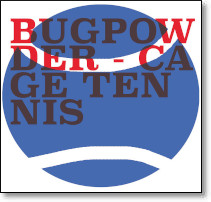 |
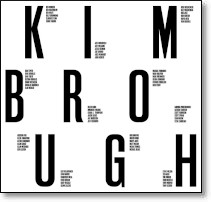 |
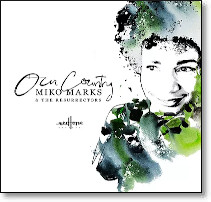 |
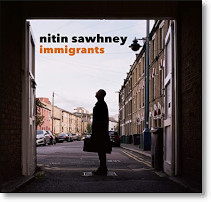 |
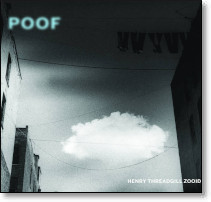 |
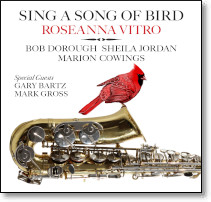 |
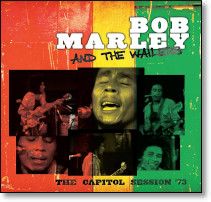 |
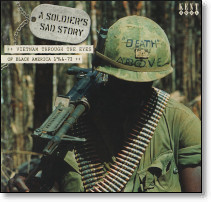 |
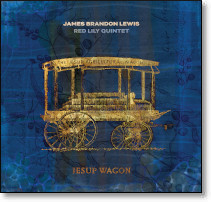 |
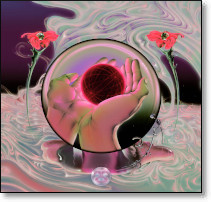 |
Expanded blog post, December archive (in progress).
Tweet: Music Week: 45 albums, 8 A-list (+2 battlefield promotions), progress on Jazz Critics Poll, latest EOY lists and aggregate, more idiosyncratic music picks, a P&J top 10, plus some moaning: looks like blues for the holidays.
Music: Current count 36943 [36898] rated (+45), 125 [123] unrated (+2).
I should wrap this up as quickly as possible, as I have a lot more work to get into. In particular, I need to write an essay introducing the 16th Annual Jazz Critics Poll, results of which will be published by Arts Fuse the week of December 27. All the ballots have been counted. Francis Davis and I know the winners (and losers), and are each supposed to write a little something on that. I'm pretty lost at the moment, but for me the key thing isn't critical consensus but the wide spread of data. We have a record 156 voters this year. They voted for 510 releases of new music, and 96 reissues/archival. I've been drawing inspiration from scattered ballots for a couple of weeks now: this week that includes Bugpowder, Kimbrough, and Sing a Song of Bird (this week's other jazz pick, Henry Threadgill's Poof, was one I was always going to listen to as soon as I got the chance).
I've also been spending time monitoring other EOY lists, compiling my EOY aggregate list (and its poorer reissues/comps sibling). It's not as deep as in past years, but currently sources 147 lists, totalling 2826 new music albums and 254 old. For comparison, that's down from 5557 new music albums in the 2020 EOY Aggregate, with the leader dropping from 814 points (Fiona Apple) to 154 (Little Simz). I suspect that the leader drop isn't just due to fewer list inputs. There's just less consensus this year.
This list-scrounging has helped me flesh out my Jazz and Non-Jazz EOY lists. The Jazz A-list is up to 67 (still down a bit from recent years, but the 26 old music is off the charts). Non-Jazz is up to 57 new, plus a measly 6 old music. I've played about twice as much jazz as non-jazz this year, but the top numbers were close to even when I first compiled this list. Jazz has pulled ahead mostly because I've been getting better intelligence via JCP. Most years the lists even out in January, after I see more trustworthy non-jazz lists.
I've been monitoring, but haven't actually contributed anything to Glen Boothe's Pazz + Jop Rip-Off Poll in recent years. (I wasn't invited to Uproxx's post-P&J Critics Poll, so didn't have to formulate a list earlier.) If I get to it, this is what I'll likely post:
- East Axis: Cool With That (ESP-Disk) 14
- Anthony Joseph: The Rich Are Only Defeated When Running for Their Lives (Heavenly Sweetness) 13
- Gift of Gab: Finding Inspiration Somehow (Nature Sounds) 12
- Sons of Kemet: Black to the Future (Impulse!) 11
- James Brandon Lewis Red Lily Quintet: Jesup Wagon (Tao Forms) 10
- Nathan Bell: Red, White and American Blues (It Couldn't Happen Here) (Need to Know) 10
- Magdalena Bay: Mercurial World (Luminelle) 9
- Maria Muldaur With Tuba Skinny: Let's Get Happy Together (Stony Plain) 7
- No-No Boy: 1975 (Smithsonian Folkways) 7
- Todd Snider: First Agnostic Church of Hope and Wonder (Aimless) 7
I was feeling pretty glum a month ago, when I decided to go ahead and compile the EOY Aggregates. I've been frustrated by lack of progress on both writing and technical projects, so figured I might as well submerge myself into something rote-mechanical, at least for the duration. When JCP came around, I was already in that mode, so the processing work came easy. (After all, I have a system: a set of programs that convert raw data into a website.) Still, at this point I'm feeling exhausted.
What I'd normally have to look forward to this week is cooking up a Christmas Eve dinner. Last year, I cooked more than usual, but since we couldn't have guests, I bought a lot of containers and packed up dinners-to-go for a dozen friends, who either came by and picked them up, or arranged for delivery. I spent a lot of time last year planning how to do that. (Details should be in last year's notebook. Not on the list, but I think I also made eggplant parmesan.) Probably too late to do anything like that this year. It's looking like the emptiest holiday ever.
New records reviewed this week:
- Teno Afrika: Amapiano Selections (2019-20 [2021], Awesome Tapes From Africa): [r]: B+(***)
- Damon Albarn: The Nearer the Fountain, More Pure the Stream Flows (2021, Transgressive): [r]: B+(*)
- Ben Allison: Moments Inside (2021, Sonic Camera): [sp]: B+(*)
- Pedro Melo Alves' Omniae Large Ensemble: Lumina (2020 [2021], Clean Feed): [sp]: B+(*)
- Roxana Amed: Ontology (2021, Sony Music Latin): [sp]: B
- Patricia Barber: Clique! (2021, Elusive Disc): [cd]: B+(***)
- Bugpowder: Cage Tennis (2020 [2021], Trytone): [r]: A-
- Chick Corea Akoustic Band: Live! (2018 [2021], Stretch, 2CD): [cd]: B+(**)
- Joy Crookes: Skin (2021, Insanity): [r]: B+(**)
- Erika De Casier: Sensational (2021, 4AD): [r]: B+(**)
- Joey DeFrancesco: More Music (2021, Mack Avenue): [r]: B+(***)
- Hamid Drake/Elaine Mitchener/William Parker/Orphy Robinson/Pat Thomas: Black Top Presents: Some Good News (2019 [2021], Otoroku, 2CD): [r]: B+(**)
- John Ellis/Adam Levy/Glenn Patscha: Say It Quiet (2021, Sunnyside): [sp]: B+(**)
- Joe Farnsworth: City of Sound (2021, Smoke Sessions): [r]: B+(*)
- Fred Frith/Ikue Mori: A Mountain Doesn't Know It's Tall (2015 [2021], Intakt): [sp]: B+(**)
- Goat Girl: On All Fours (2021, Rough Trade): [r]: B+(**)
- Cameron Graves: Seven (2021, Mack Avenue): [r]: B-
- Grouper: Shade (2021, Kranky): [r]: B+(*)
- Alexander Hawkins: Togetherness Music: For Sixteen Musicians (2020 [2021], Intakt): [sp]: B+(***)
- Jazzmeia Horn and Her Noble Force: Dear Love (2021, Empress Legacy): [sp]: B+(*)
- Michael Hurley: The Time of the Foxgloves (2021, No Quarter): [r]: B+(**)
- Boldy James & the Alchemist: Bo Jackson (2021, ALC): [r]: B+(*)
- Kimbrough (2021, Newvelle): [sp]: A-
- Martin Küchen & Michaela Antalová: Thunder Before Lightning (2019 [2021], Clean Feed): [sp]: B-
- Mike LeDonne's Groover Quartet + Big Band: It's All Your Fault (2020 [2021], Savant): [r]: B+(*)
- Dave Liebman Expansions: Selflessness: The Music of John Coltrane (2021, Dot Time): [r]: B+(**)
- Miko Marks & the Resurrectors: Our Country (2021, Redtone): [r]: A-
- Miko Marks & the Resurrectors: Race Records (2021, Redtone, EP): [r]: B+(**)
- Terrace Martin: Drones (2021, BMG): [r]: B+(**)
- Lori McKenna: Christmas Is Right Here (2021, CN, EP): [r]: B+(***)
- Mustafa: When Smoke Rises (2021, Regent Park Songs, EP): [r]: B+(*)
- Gretchen Parlato: Flor (2021, Edition): [r]: B+(**)
- Greentea Peng: Man Made (2021, AMF): [r]: B+(***)
- Mariá Portugal: Erosão (2021, Fun in the Church): [r]: B+(**)
- Jordan Rakei: What We Call Life (2021, Ninja Tune): [r]: B+(*)
- Phil Ranelin: Infinite Expressions (2020 [2021], ORG Music): [r]: B+(**)
- Porter Robinson: Nurture (2021, Mom + Pop): [r]: B
- Sten Sandell/Lisa Ullén: Double Music (2021, Clean Feed): [bc]: B+(**)
- Nitin Sawhney: Immigrants (2021, Sony Masterworks): [r]: A-
- Henry Threadgill Zooid: Poof (2019 [2021], Pi): [cd]: A-
- Roseanna Vitro: Sing a Song of Bird (2017-21 [2021], Skyline): [sp]: A-
- Anna Webber: Idiom (2019 [2021], Pi, 2CD): [cd]: B+(***)
- Michael Wollny/Emile Parisien/Tim Lefebvre/Christian Lillinger: XXXX (2019 [2021], ACT): [r]: B+(***)
- Yola: Stand for Myself (2021, Easy Eye Sound): [r]: B
Recent reissues, compilations, and vault discoveries:
- Amapiano Now ([2021], NTS): [r]: B+(***)
- Bob Marley & the Wailers: The Capitol Session '73 (1973 [2021], Mercury/Tuff Gong): [r]: A-
- Archie Shepp: Live in Paris 1974 (1974 [2021], Transversales Disques): [bc]: B+(***)
Old music:
- A Soldier's Sad Story: Vietnam Through the Eyes of Black America 1966-1973 (1966-73 [2003], Kent): [sp]: A-
Grade (or other) changes:
- James Brandon Lewis Red Lily Quintet: Jesup Wagon (2020 [2021], Tao Forms): [cd]: [was: A-] A
- Magdalena Bay: Mercurial World (2021, Luminelle): [cd]: [was: A-] A
Unpacking: Found in the mail last week:
- Fred Hersch: Breath by Breath (Palmetto) [01-07]
- Magdalena Bay: Mercurial World (Luminelle)
- Roberto Magris: Match Point (JMood)
- Tony Malaby: The Cave of Winds (Pyroclastic) [01-07]
- Emile Parisien: Louise (ACT) [01-28]
- The Smudges: Song and Call (Cryptogramophone) [02-18]
Thursday, December 16, 2021
Daily Log
On Facebook, Matt Merewitz reported: "One of my contacts in digital distribution told me that on average 1,500 new 'jazz' releases come out every week worldwide." I'd like to see some real numbers, so my first stop was Discogs. Filters 2021 and Jazz gave me 11,605 releases, but that would include multi-format redundancy. Album got me down to 7,423. Of that, 1,606 were Reissue, so let's say 5,817. Most likely there are still filing errors, which would reduce the total further, say 10%. On the other hand, seems like about 10% of the 2021 releases I've tried to find there were missing, so the net is close, perhaps up a bit, say 6,000.
Looking at the top 50, I see 12 records (24%) that I've heard so far, including 4 I'd classify as historical. In the next 50, I've heard 10, and in following batches: 8, 9, 2, 3, 5, 7, 5, 2, so 63/500, 12.6%. I've heard about 680 jazz albums this year, so if I've heard one in eight, that implies the total number is about 5,440. Scanning through this sample of 500 suggests my 10% discount for filing errors (mostly duplicate entries and inclusion of non-jazz titles -- Steely Dan, Ani Di Franco, Gino Vannelli are examples) is on the low side, but unknown unknowns are typically underestimated as well.
I made an attempt to count all jazz albums back around 2005, and came up with a little more than 2,000, which I estimated to be 20-30% low. The numbers I'm getting today are about double the 2005 estimate. That seems credible. (The number of jazz records I've heard has, if anything, gone down in that time period, but there are other reasons for that, and my listening time isn't scalable anyway.)
I wrote a fairly long summary into a Facebook comment, which destroyed it.
JazzTimes poll results (11-40):
40. Mike LeDonne: It's All Your Fault (Savant) {129}
39. Joe Lovano & Dave Douglas SoundPrints: Other Worlds (Greenleaf) {36}
38. Steve Coleman and Five Elements Live at the Village Vanguard Volume II (MDW NTR) (Pi) {31}
37. Dan McCarthy: A Place Where We Once Lived (self-released) {190}
36. John Pizzarelli: Better Days Ahead: Solo Guitar Takes on Pat Metheny (Ghostlight) {136}
35. Jihye Lee Orchestra: Daring Mind (Motéma) {58}
34. Jamire Williams: But Only After You Have Suffered (International Anthem) {108}
33. Oz Noy: Snapdragon (Abstract Logix) {--}
32. Nadje Noordhuis: Gullfoss (Little Mystery) {174}
31. Vince Mendoza: Freedom Over Everything (Modern) {--}
30. Eivind Aarset: Phantasmagoria, or A Different Kind of Journey (Jazzland) {402}
29. Various Artists: Indaba Is (Brownswood) {402}
28. Brian Lynch: Songbook Vol 1: Bus Stop Serenade (Hollistic Music Works) {118}
27. The Cookers: Look Out! (Gearbox) {43}
26. Thumbscrew: Never Is Enough (Cuneiform) {52}
25. James Francies: Purest Form (Blue Note) {249}
24. Amir ElSaffar/Rivers of Sound: The Other Shore (Outnote) {16}
23. Percy Jones/Alex Skolnick/Kenny Grohowski/Tim Motzer: PAKT (MoonJune) {--}
22. Craig Taborn: Shadow Plays (ECM) {20}
21. Gerry Gibbs Thrasher Dream Trios: Songs from My Father (Whaling City Sound)
20. Irreversible Entanglements: Open the Gates (International Anthem) {49}
19. Chick Corea Akoustic Band: LIVE (Concord Jazz) {42}
18. Sons of Kemet: Black to the Future (Impulse!) {9}
17. Cameron Graves: Seven (Artistry/Mack Avenue) {158}
16. Charles Lloyd & the Marvels: Tone Poem (Blue Note) {4}
15. Kenny Garrett: Sounds from the Ancestors (Mack Avenue) {11}
14. Veronica Swift: This Bitter Earth (Mack Avenue) {68}
13. Henry Threadgill Zooid: Poof (Pi) {6}
12. Remy Le Boeuf's Assembly of Shadows: Architecture of Storms (Soundspore) {93}
11. Dr. Lonnie Smith: Breathe (Blue Note) {50}
10. Archie Shepp & Jason Moran, Let My People Go (Archieball)
9. Pat Metheny, Side-Eye NYC (V1.IV) (Modern)
8. William Parker, Migration of Silence Into and Out of the Tone World: Volumes 1-10 (Centering)
6. Ches Smith and We All Break, Path of Seven Colors (Pyroclastic)
5. Vijay Iyer, Uneasy (ECM)
4. Johnathan Blake, Homeward Bound (Blue Note)
3. Anna Webber, Idiom (Pi)
2. Floating Points, Promises (Luaka Bop)
1. James Brandon Lewis, Jesup Wagon (Tao Forms)
[Added 1-10 later, also bracket numbers below. Unexpected in top 10: Shepp, Parker.] Seems likely that the top ten will come from this list of 14 JCP top-40 finishers:
[4] Johnathan Blake, Homeward Bound; Andrew Cyrille, The News; [2] Floating Points, Promises; Dave Holland, Another Land; [5] Vijay Iyer, Uneasy; Julian Lage, Squint; [1] James Brandon Lewis, Jesup Wagon; Makaya McCraven, Deciphering the Message; [9] Pat Metheny, Side-Eye NYC; William Parker, Mayan Space Station; [6] Ches Smith, Path of Seven Colors; Wadada Leo Smith, The Chicago Symphonies; [3] Anna Webber, Idiom; Miguel Zenón, Law Years.
Wednesday, December 15, 2021
Daily Log
Kathleen Geier twitter thread:
We're in a hair-on-fire moment for American democracy, which is under dire threat.
But one of the strangest things about the crisis we're facing is that *Republicans* are far more likely to believe that democracy is under attack than are Democrats.
[link: Thomas Edsall: How to Tell When our Country Is Past the Point of No Return]
I place the blame squarely on the complacent, Weimar-esque Democratic leadership for not raising the alarm. Voters take cues from their leaders, and GOP elites are constantly shrieking about "stolen" elections and ginning up fake controversies over non-existent voter fraud.
Whereas Democratic leaders, for the most part, have been silent about the growing crisis, and have remained in passive, head-in-the-sand mode instead of taking the aggressive actions we need to protect our voting rights, reform the courts, and combat GOP gerrymandering.
The leaders of the Democratic party are utterly, tragically failing us. History will judge them harshly.
I tweeted a response:
Here I was thinking Democrats were inducing boredom with their constant harping about the faulty mechanics of elections, while missing the real threat (money), and shortchanging the real reason democracy matters: to make government responsive to public needs.
Tuesday, December 14, 2021
Daily Log
Jan sent me a picture of a recipe card for Aunt Bea's Meat Loaf:
- 2 lb ground beef
- 3 eggs
- 1 medium green pepper chopped
- 1 medium onion chopped
- 1 8 oz can tomato sauce
- 2 slices toast, break into 1/2 c milk
- salt
375F
Monday, December 13, 2021
Music Week
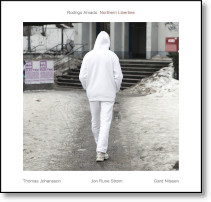 |
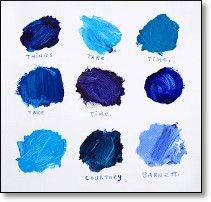 |
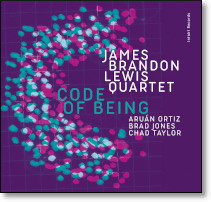 |
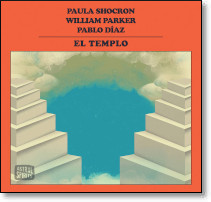 |
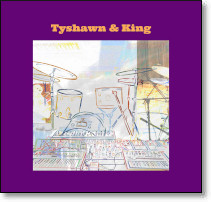 |
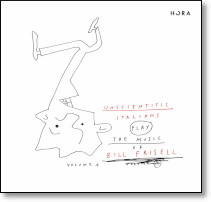 |
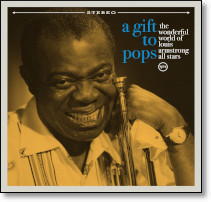 |
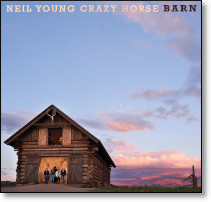 |
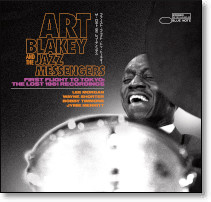 |
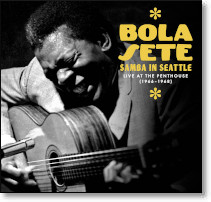 |
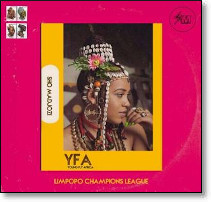 |
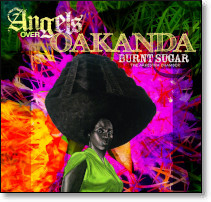 |
Expanded blog post, December archive (in progress).
Tweet: Music Week: 55 albums, 12 A-list, furiously struggling to catch up with the closing year, which is proving to have quite a bit of interesting music, even if it's hard to find; also some notes on the late Greg Tate, revered as a critic, underappreciated as a musician.
Music: Current count 36898 [36843] rated (+55), 123 [119] unrated (+4).
Spent most of last week transcribing Jazz Critics Poll ballots. Deadline was Sunday night, so in theory that's done, but we'll accept stragglers at least until tomorrow. We currently have 150 ballots, one more than last year's record. Of course, I can't talk about results now -- you should be able to see the critics list, but when you lick on the links the choices should remain blank, until we unleash them last week of December.
Still, a lot of the records in this week's haul came from picks on those ballots. The total number of records receiving votes is 673, which is about 4.5 times the number of ballots (full ballots list 16 albums). That's the third highest number of albums, behind 2020 (683) and 2019 (674), but could edge up a bit.
Second significant source for records this week was Robert Christgau's Consumer Guide. I had previously looked for Courtney Barnett and Neil Young, but only found them this week. Among other picks, good to see the Gift of Gab album I gave an A to recently, less so a Jason Isbell album that struck me as a B, in between a Parquet Courts I deemed a B+(***). That was also my initial grade for the Burnt Sugar album I revisited. I didn't get to it until after the news that Greg Tate had died, so can't meet Bob's claims to an unaffected grade, but I'm happy to have enjoyed the record more than when I rushed it before.
Something else to note this week is that I signed up for one of those three-month free trials of Spotify. I've been increasingly frustrated by hangs listening to Napster, and coverage of some labels has been spotty. I've suspected that Spotify has a small but significant number of albums not on Napster (or impossible to find on Napster), so I waited until the next offer came around, and took it. I almost immediately got pissed off at it, as the browser ap defaulted to autoplay -- the whole point of streaming for me is that I know what I'm listening to, and when it ends. However, I did some research and discovered that their Linux ap (something Napster doesn't have) has a settings switch, so I downloaded that, and plunged into Limpopo Champions League (a desired album not on Napster that I had found on Spotify). So there's a few "[sp]" records on this week's list, and more to come. One especially pleasant surprise was finding an already constructed playlist for one of the Vietnam War anthologies Christgau reviewed in the latest Consumer Guide. Unfortunately, the other two volumes don't seem to exist.
I don't have a lot to say about the late Greg Tate. He, like me, gained his first prominence as one of Robert Christgau's stable of freelancers at the Village Voice, but he was 7 years younger, and entered that orbit after I had checked out (so I never actually met him). We had one thing in common: we were both huge P-Funk fans before we hooked up with Bob. I remember Carola wondering whether Bob's late conversion might have been influenced by my arrival in New York, but Bob dismissed the idea, instead citing Parliament's Live album, appearing shortly before we saw them at Madison Square Garden (coincidentally, a first date with my future wife) -- we were all in a cluster of freeloaders on the floor, a white hole in the middle of a chocolate donut. Tate, of course, was more credible and more memorable in his enthusiasm. He was one of the few Voice critics I read regularly once I left New York. He had eye-opening insights had an astonishing gift for language. I'm not surprised as I read young critics cite him as their inspiration, but being 7 years older, I can't say that. All I can allow is that after he came around, it's just as well I had retired.
After Tate died, I jotted down some tweets:
Nate Chinen: Absolutely gutted to learn that Greg Tate has left this dimension. What a hero he's been -- a fiercely original critical voice, a deep musician, an encouraging big brother to so many of us. Total shock.
Robert Christgau: Thulani Davis led me to Greg Tate. With his first submission the word "genius" swam in my head. "The more writing like this I get the happier I'll be," I told him. And I did get more--lots. Problem was, all of it was by Greg. He was so inimitable few even tried to rip him off.
Joe Levy: I edited Greg Tate at the Village Voice for five years, '89-'94. The pieces would come in, and of course they'd be great. But there would be bits -- thoughts or language -- that Greg hadn't worked out yet. So then Greg would come in. On the fly, he would spit paragraphs of diamonds, stuff that anyone else would spend hours trying to grasp, then hours more working to articulate. And I'd type it, and then he'd say, "Nah. We can do better." And then he did. The man's verbal and mental dexterity was superhero stuff. Not human, just not possible. He made giant steps look like a casual stroll. He made everyone around him smarter. He did it with warmth and grace and humor, his basso profundo like a warm blanket of knowledge.
Michaelangelo Matos: I keep thinking of Greg Tate stories, Greg Tate quotes, and they're completely, blessedly all over the place, of course.
Moor Mother: Greg Tate was a different type of cool. A style brought to you by gaining respect with words with a vibe no university could ever teach. So they hired him to school folks on what it really means to be apart of the culture and some of us are still realizing what he did for us.
Amanda Petrusich: Gutted to hear that Greg Tate -- an extraordinary critic, the writer who taught me what's possible in this work, how criticism can vibrate, sing, lift -- is gone.
Allen Lowe: Greg Tate's 1992 anthology Flyboy in the Buttermilk: Essays on Contemporary America is about as essential as any critical work I've ever read. Greg and I became friends on Facebook and happened to meet two or three times over the years. We didn't always agree but I found everything he had to say insightful and illuminating. He was also a very nice man who when I first got sick a few years back and needed some help with what became my last book, came immediately to my assistance, no questions asked, with just human kindness and a sharp literary/aesthetic eye. The news that he's just died both grieves me and makes me cringe at not just the temporary state of ideas as cultural capital but also at the temporal state of our cultural memory. Greg was the very definition of "trendy," but they were trends that he helped to root out and that he turned into a very personal critical aesthetic.
I can also cite a few articles, although the collection here is haphazard:
- Kevin Powell: Greg Tate showed me what being a writer in America could mean: I was surprised to find this piece syndicated in the Wichita Eagle over the weekend.
- Clay Risen: Greg Tate, Influential Black Cultural Critic, Dies at 64: Greg Magarian was thinking of this piece when he suggested there was a special category of writing, that offer more tribute in death than a publication ever showed respect in life.
- Marcus J. Moore: There Will Never Be Another Greg Tate.
- Rob Sheffield: A Warrior for the Heart: The Gigantic Music Legacy of Greg Tate.
- RJ Sith: Critic Greg Tate taught a generation how to listen to, love and write about Black music.
- NPR: Stonecoldboldness: A many-sided memorial to the writing of Greg Tate: A bunch of excerpts and quotes.
- Bookforum: Greg Tate (1957-2021): by Daphne A. Brooks, Robert Christgau, Sasha Frere-Jones, and Carl Wilson.
- The Village Voice: Greg Tate: Partial index of his Village Voice reviews.
- The Wire: Greg Tate: Index of articles Tate wrote for The Wire.
- Hua Hsu: The Critic Who Convinced Me That Criticism Could Be Art: New Yorker profile from 2016.
- Greg Tate: Afropessimism and Its Discontents: "A guide for the perplexed, the puzzled, and the politically confused." Recent article (Sept. 17, 2021).
I'm a bit surprised that there's less out on his music. I've listened to (and liked) most of it, but don't have my scraps of writing readily available, nor have I seen much else. Burnt Sugar/The Arkestra Chamber has rarely been reviewed by jazz critics (Angels Over Oakanda has 4 JCP votes this year, probably his first ever), let alone others (only a partial exception is Robert Christgau -- page doesn't yet include his A review of Angels). I've been toying with the idea of jazz as "social music" lately, by which I mean music that organizes social movement, often with a political goal, but always as an assertion of cultural worth. I see this in the crossover jazz that's become popular in London recently. It seems to me that Tate was trying to do something like that here, even though hardly anyone's been paying attention.
Meanwhile, I seem to have misplaced my copy of Flyboy in the Buttermilk, just when I could use something new to read. Ordered a copy of Flyboy 2, but the delivery schedule on that stretches out another week. I have the Graeber/Wengrow The Dawn of Everything: A New History of Humanity in the wings, but that seems like a big chunk to chew off. I've found Amitav Ghosh's The Nutmeg's Curse very stimulating, although not without problems (as I cling to my stubborn faith in reason).
New records reviewed this week:
- Rodrigo Amado Northern Liberties: We Are Electric (2017 [2021], Not Two): [cd]: A-
- Courtney Barnett: Things Take Time, Take Time (2021, Mom + Pop): [r]: A-
- Rubén Blades y Roberto Delgado & Orquesta: Salswing! (2021, Ruben Blades Productions): [r]: B+(*)
- Theo Bleckmann and the Westerlies: This Land (2019 [2021], Westerlies Music): [sp]: B+(***)
- Dean Blunt: Black Metal 2 (2021, Rough Trade): [r]: B+(**)
- Anthony Braxton: 12 COMP (ZIM) 2017 (2017 [2021], Firehouse 12, 12CD): [bc]: B+(***)
- Patricia Brennan: Maquishti (2018 [2021], Valley of Search): [r]: B+(*)
- Bill Charlap Trio: Street of Dreams (2021, Blue Note): [sp]: B+(**)
- Boubacar "Badian" Diabaté: Mande Guitar (2021, Lion Songs): [bc]: B+(**)
- Mathias Eick: When We Leave (2020 [2021], ECM): [r]: B+(**)
- Sam Fender: Seventeen Going Under (2021, Polydor): [r]: B
- Friends & Neighbors: The Earth Is # (2021, Clean Feed): [sp]: B+(***)
- Godspeed You! Black Emperor: G_d's Pee at State's End (2021, Consetllation): [r]: B+(*)
- Muriel Grossmann: Union (2021, Dreamland): [r]: B+(***)
- Thomas Heberer: The Day That Is (2021, Sunnyside): [bc]: B+(***)
- William Hooker: Big Moon (2020 [2021], Org Music): [bc]: B+(***)
- François Houle/Samo Salamon: Unobservable Mysteries (2020, Samo): [r]: B+(**)
- Susie Ibarra: Talking Gong (2020 [2021], New Focus): [bc]: B+(*)
- Susie Ibarra: Walking on Water (2018-19 [2021], Innova): [bc]: B+(**)
- Frank Kimbrough: Ancestors (2017 [2021], Sunnyside): [r]: B+(***)
- Craig Klein: Talkative Horns: Musical Conversations on Lucien Barbarin (2021, Tromboklein Music): [bc]: B+(**)
- La La Lars: La La Lars III (2021, <1000): [bc]: B+(***)
- Mary LaRose: Out Here (2021, Little (i) Music): [r]: B+(***)
- James Brandon Lewis Quartet: Code of Being (2021, Intakt): [r]: A-
- Harold Mabern: Mabern Plays Coltrane (2018 [2021], Smoke Sessions): [r]: B+(*)
- Nick Mazzarella/Ingebrigt Håker Flaten/Avreeayl Ra: What You Seek Is Seeking You (2019 [2021], Astral Spirits): [r]: B+(***)
- Makaya McCraven: Deciphering the Message (2021, Blue Note): [sp]: B+(**)
- Pat Metheny: Side-Eye NYC (V1.IV) (2019 [2021], Modern): [r]: B+(*)
- Ming Bau Set: Yakut's Gallop (2020 [2021], Fundacja Luchaj): [dl]: B+(***)
- Mogwai: As the Love Continues (2021, Temporary Residence): [r]: B
- Angelika Niescier/Alexander Hawkins: Soul in Plain Sight (2020 [2021], Intakt): [r]: B+(***)
- Stephanie Nilles: I Pledge Allegiance to the Flag: The White Flag (2019 [2021], Sunnyside): [bc]: B+(**)
- Joy Orbison: Still Slipping Vol. 1 (2021, XL): [r]: B+(**)
- Hannah Peel: Fir Wave (2021, My Own Pleasure): [r]: B+(**)
- Punkt. Vrt. Plastik [Kaja Draksler/Petter Eldh/Christian Lillinger]: Somit (2020 [2021], Intakt): [sp]: B+(***)
- Emily Scott Robinson: American Siren (2021, Oh Boy): [r]: B+(***)
- Andreas Røysum Ensemble: Fredsfanatisme (2021, Motvind): [r]: B+(**)
- Paula Shocron/William Parker/Pablo Díaz: El Templo (2019 [2021], Astral Spirits): [bc]: A-
- Tyshawn Sorey/King Britt: Tyshawn & King (2021, The Buddy System): [r]: A-
- Rossano Sportiello: That's It (2021, Arbors): [r]: B+(**)
- Strictly Missionary: Heisse Scheisse (2021, Astral Spirits): [bc]: B+(***)
- Ohad Talmor Trio: Mise En Place (2020 [2021], Intakt): [r]: B+(***)
- Unscientific Italians: Play the Music of Bill Frisell Vol. 1 (2019 [2021], Hora): [bc]: A-
- Martin Wind Quartet: My Astorian Queen (2021, Laika): [cd]: B+(**)
- The Wonderful World of Louis Armstrong All Stars: A Gift to Pops (2021, Verve): [r]: A-
- Neil Young/Crazy Horse: Barn (2021, Reprise): [r]: A-
Recent reissues, compilations, and vault discoveries:
- Art Blakey & the Jazz Messengers: First Flight to Tokyo: The Lost 1961 Recordings (1961 [2021], Blue Note): [sp]: A-
- Jeanne Lee: Conspiracy (1975 [2021], Moved-by-Sound): [bc]: B+(*)
- Bheki Mseleku: Beyond the Stars (2003 [2021], Tapestry Works): [r]: B+(**)
- New Life: Visions of the Third Eye (1979 [2021], Early Future): [bc]: B+(***)
- Bola Sete: Samba in Seattle: Live at the Penthouse 1966-1968 (1966-68 [2021], Tompkins Square, 3CD): [bc]: A-
- Butch Warren & Freddie Redd: Baltimore Jazz Loft (2013 [2021], Bleebop): [bc]: B+(**)
- Ken Wheeler and the John Dankworth Orchestra: Windmill Tilter: The Story of Don Quixote (1969 [2021], Decca): [yt]: B+(***)
Old music:
- Sho Madjozi: Limpopo Champions League (2018, Flourish and Multiply): [sp]: A-
Grade (or other) changes:
- Burnt Sugar/The Arkestra Chamber: Angels Over Oakanda (2018-21 [2021], Avantgroidd): [bc]: [was: B+(***)] A-
Unpacking: Found in the mail last week:
- Rodrigo Amado Northern Liberties: We Are Electric (Not Two) [11-24]
- Patricia Barber: Clique! (Elusive Disc)
- Chris Castino & Chicken Wire Empire: Fresh Pickles (self-released) [02-04]
- Henry Threadgill Zooid: Poof (Pi) [09-24]
- Anna Webber: Idiom (Pi, 2CD) [05-28]
- Martin Wind Quartet: My Astorian Queen (Laika) [11-12]
Sunday, December 05, 2021
Music Week
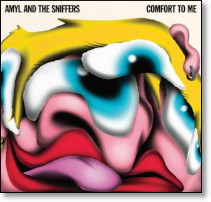 |
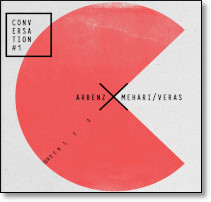 |
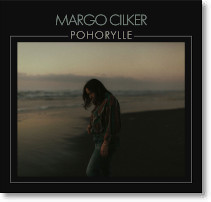 |
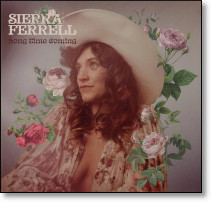 |
 |
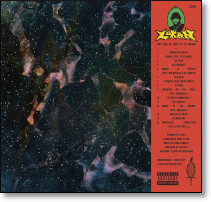 |
 |
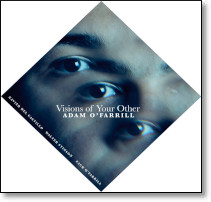 |
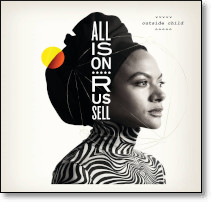 |
Expanded blog post, December archive (in progress).
Tweet: Music Week: 46 albums, 9 A-list, focusing on new music again, finding gems on EOY lists (as well as a few frogs); JCP ballot picks, longer best-of lists, a note on the BBHOF, a longer remembrance of the late KS Senator, first met 69 years ago.
Former Kansas politician and Republican majordomo Robert J. Dole has died at 98, after a long and eventful life that caused immeasurable damage to American society and politics. I remember him mostly for running one of the most scurrilous political campaigns in Kansas history, when he narrowly defeated Bill Roy for his second Senate term in 1972. Dole was the first Republican in Kansas to find a way to politicize abortion and exploit the bigotry and confusion around the issue. That was the first year I voted, and not a single person I voted for -- not even the Republican who was certainly the lesser evil running against Democratic Sheriff/Attorney General Vern Miller -- won. It was also the last time I voted until 1996, and I found myself with another chance to vote against Dole. That time, at least, I was more successful, not that Bill Clinton was much of a prize.
They say that when one dies, if you can't say something nice don't say anything at all. I rarely follow that advice, but in Dole's case I actually can say a few nice things (even if I have trouble limiting myself). Here goes:
In 1952, Bob Dole attended my Uncle Allen's funeral. Dole was in the state legislature at the time, from Russell, probably not in the same district Allen lived but not far. He didn't know Allen, but saw good politics in going to the funerals of veterans, and Allen had been in the Navy during WWII. I don't remember it at all, but that was probably the only time Dole and I shared the same roof. He had already figured out how to exploit his war injuries for political gain, as he would continue to do throughout his career.
Dole could be funny. I usually regard that as a redeeming human quality, as well as a sign of intelligence (as I recall John Allen Paulos' book, I Think, Therefore I Laugh). My favorite line of his was when he saw a group picture of former presidents Carter, Ford, and Nixon, and quipped "See no Evil, hear no Evil, and Evil." But I read a piece today with a selection of his humor, and few of his other zingers hold up. I also read about the teary eulogy he gave at Nixon's funeral. That doesn't necessarily mean that he stopped regarding Nixon as Evil, as he did plenty in service of Evil throughout his career. But before Watergate, Nixon was clearly Dole's role model of a politician on the make. They had very similar backgrounds, ambitions, and trajectories, although Nixon got there quicker, and more fatefully.
Dole was probably the last person ever to make what used to be a common quip about the Democrats being the War Party. This was in a 1996 debate, and while Clinton may have been flattered, the moderator and the press were clearly baffled. The history was that Democrats had led the country into and through two world wars, and into stuck wars in Korea and Vietnam that were ultimately disengaged by Republicans (although Nixon took his bloody time). For much of that time, Republicans tended to be "isolationist" (a term invented to disparage those who prefer to mind their own business), but that started to shift with the rise of the anti-Communist crusaders like Nixon, Joe McCarthy, and Barry Goldwater. By the time you get to Reagan, Republicans had embraced militarism so utterly that Dole's quip fell on deaf ears, while anti-war Americans had shifted to the Democratic Party, only to be frequently betrayed by their leaders. No doubt Dole was just desperately racking his brain for a debate point, but I found his choice somewhat charming.
Dole spent most of his career as an extreme partisan hack, but when he finally did decide he wanted to leave a legacy, he came up with the Americans With Disabilities Act. Which is to say, he realized that the way to be remembered for doing something good was, in the New Deal/Great Society manner, to add to the "entitlements" of a class of people discriminated against. This suggests he was still cognizant of the values system that dominated the pre-Reagan era, even though he had spent almost all of his political career fighting against it. I've seen ADA called the last bipartisan act. In other words, it was the last time Republicans ever attempted to use government to help people (although given how many disabled were victims of war, the law also paid tribute to militarism).
But that's all I have. I've never understood why people credit him with anything more. (The biggest critical lapse was by Tom Carson, who treats him as a humble folk hero in his otherwise brilliant novel, Gilligan's Wake.) He pulled Kansas hard to the right, and for a long time remained an outlier, at least compared to decent Republican senators James Pearson and Nancy Kassebaum. It was only with the rise of Sam Brownback and Todd Tiahrt in the 1990s that Dole started to look moderate, but their demagoguery on abortion starts with Dole's 1972 campaign. After his loss in 1996, he settled into the comfortable life of a Washington shill, never using what little political stature he had achieved to try to stem the Republican slide into and beyond Trumpism. He served his party, and was rewarded with wealth and fame and flattery and forbearance. Now he's being showered with flowery eulogies, a symptom of the same mental collapse as we witnessed with Colin Powell and John McCain -- rivals in the sweepstakes to see who could make the most mileage (and moolah) out of unfortunate military careers. And what did you get for all his success? Fucked.
Very busy week looking at EOY lists and playing new music. Magdalena Bay topped the list at Gorilla vs Bear, and is near the top of my A- bracket, a good chance to go full A. Everything else is toward the bottom of the A- bracket, but that mostly reflects the limited time I've been able to give each release. They are all distinctive, interesting albums, very good ones. I probably left a few more short at B+(***) -- Mexstep? Navy Blue? R.A.P. Ferreira? I don't have a good ear for lyrics, and not enough patience to properly process rap albums, so I guess a lot.
Amyl & the Sniffers topped Louder Than War's list (not a source I look to, but still). Little Simz and Floating Points have topped the most lists so far. I gave the former *** and the latter **, and should revisit both. Number three on my EOY Aggregate is Dry Cleaning, which I bumped to A- after an initial lower grade. Tyler, the Creator (another ***) has moved into 4th, displacing Low, which I'll never return to. Tyler is the only US hip-hop contender: Mach-Hommy is at 30, Vince 33, Lil Nas X 38, Doja Cat 71, Armand Hammer 96, J Cole 104.
Jazz Critics Poll ballots are due Sunday, December 12.
New Music:
- East Axis [Matthew Shipp/Allen Lowe/Gerald Cleaver/Kevin Ray]: Cool With That (ESP-Disk)
- Sons of Kemet: Black to the Future (Impulse!)
- James Brandon Lewis Red Lily Quintet: Jesup Wagon (Tao Forms)
- Steve Coleman and Five Elements: Live at the Village Vanguard Volume II (MDW NTR) (Pi)
- Dave Rempis/Tomeka Reid/Joshua Abrams/Tim Daisy/Tyler Damon: The Covid Tapes: Solos, Duos, & Trios (Aerophonic)
- Anthony Braxton: Quartet (Standards) 2020 (New Braxton House)
- François Carrier: Glow (FMR)
- Barry Altschul's 3Dom Factor: Long Tall Sunshine (Not Two)
- Wadada Leo Smith: Sacred Ceremonies (TUM)
- Rodrigo Amado This Is Our Language Quartet: Let the Free Be Men (Trost)
Reissues/Historical:
- Duck Baker: Confabulations (1994-2017, ESP-Disk)
- Total Music Association: Walpurgisnacht (1971-88, NoBusiness)
- Bill Evans: Behind the Dikes: The 1969 Netherlands Recordings (Elemental Music)
Vocal:
- Anthony Joseph: The Rich Are Only Defeated When Running for Their Lives (Heavenly Sweetness)
Debut:
- Malcolm Jiyane Tree-O: Umdali (Mushroom Hour Half Hour)
Latin:
- Miguel Zenón/Ariel Bringuez/Demian Cabaud/Jordi Rossy: Law Years: The Music of Ornette Coleman (Miel Music)
Some brief notes. I jiggled New Music around to get something I found aesthetically pleasing and well-suited to the year. This list (at least at the moment) matches my Jazz EOY List. I favored albums I had physical copies of, but included two I had only streamed (Braxton and Altschul). I did enforce a CD-only policy for the old music section, so my ballot is very different from the EOY list, where the top album was Charles Mingus, Mingus at Carnegie Hall [Deluxe Edition]. The Joseph album is an irregular choice for Vocal, in that I parked it on top of the Non-Jazz EOY List, but I find myself enjoying very few jazz vocalists -- the only ones to make my A-list were Sarah Buechi and Anaïs Reno -- while Joseph's is one of the year's very best albums. I went with somewhat arbitrary choices for Debut and Latin as well. I actually have a group, Body Meπa, higher on my list than Jiyane, but we tend to frown on group debuts. I like classic Latin jazz, but I'm rarely impressed enough by recent efforts to have any of it show up on my A-list, so I usually wind up picking something tangential. This year that's Zenón's not-all-that-Latinized Ornette Coleman tribute, which I prefer over his explicitly Latin El Arte del Bolero. One curious fact from counting the JCP votes is that thus far all but one of Zenón's New Album votes are for Law Years, but all of his Latin votes are for El Arte del Bolero.
It's possible to change ballots up to Dec. 12. (Hopefully, that's incentive to send them in earlier.) I may wind up changing my ballot a bit, but I'm pretty happy with it now. I will certainly wind up changing my EOY files as I find new things, and sometimes as I further review initial grades. I'm finally streaming James Brandon Lewis' Code of Being as I write this. Supposedly, Henry Threadgill's Poof is in the mail. There are at least three Blue Note albums that I haven't been able to stream, as I have their other records for many years now. (I don't even know why does publicity there anymore, but I assume the reason they do so well in polls is the breadth of their PR operation -- I can't say much for their quality in recent years.)
Much more could be said, but I'm pressed for time, and this is enough for now. Still haven't done the indexing on the November Streamnotes file.
I thought I might note that I was pleased with the small-committee selections to the National Baseball Hall of Fame. Especially Minnie Minoso, who clearly would have topped 3,000 hits had he not been excluded from the Major Leagues for the first half of his career. I'll also note that while Jim Kaat's 283 career wins were an obvious qualification, the article doesn't note how many Gold Glove awards he won (16) -- Randy Robbins throws some shade on his fielding reputation, but one thing I remember from watching him is how he always looked ready to field a ball hit back to him, unlike most pitchers, who come off their pitch off-balance and are lucky to get out of the way. Gil Hodges and Tony Oliva were slightly lesser stars I have no complaints about. I don't know the Negro League numbers, which have only recently been systematically compiled and accepted as official, like I do the old majors, so I only know Buck O'Neil by reputation (including as the inspiration for Darby Conley's Get Fuzzy cat name), and Bud Fowler less than that. The latter offers us a teachable moment, reminding us that segregation was the cardinal sin of baseball not just when O'Neil played (1937-48) but from the very beginning.
New records reviewed this week:
- Adele: 30 (2021, Columbia): [cd]: B-
- Amyl and the Sniffers: Comfort to Me (2021, Rough Trade): [r]: A-
- Florian Arbenz/Hermon Mehari/Nelson Veras: Conversation #1: Condensed (2021, Hammer): [bc]: A-
- Florian Arbenz: Conversations #2 & #3 (2021, Hammer): [bc]: B+(***)
- Florian Arbenz: Conversation #4: Vulcanized (2021, Hammer): [bc]: B+(***)
- Blue Reality [Michael Marcus/Joe McPhee/Jay Rosen/Warren Smith]: Quartet! (2020 [2021], Mahakala Music): [r]: B+(***)
- Weedie Braimah: The Hands of Time (2021, Stretch Music/Ropeadope): [r]: B+(**)
- Chamber 4: Dawn to Dusk (2020 [2021], JACC): [cd]: B+(***)
- Margo Cilker: Pohorylle (2021, Loose): [r]: A-
- Theo Croker: BLK2LIFE // A Future Past (2021, Sony Masterworks): [r]: B
- Angel Bat Dawid: Hush Harbor Mixtape Vol. 1 Doxology (2021, International Anthem): [r]: B+(**)
- Indigo De Souza: Any Shape You Take (2021, Saddle Creek): [r]: B+(*)
- Dwayne Dopsie and the Zydeco Hellraisers: Set Me Free (2021, Louisiana Red Hot): [r]: B+(***)
- Wendy Eisenberg: Bloodletting (2019 [2021], Out of Your Head): [dl]: B+(*)
- R.A.P. Ferreira: The Light Emitting Diamond Cutter Scriptures (2021, Ruby Yacht): [r]: B+(***)
- Sierra Ferrell: Long Time Coming (2021, Rounder): [cd]: A-
- Ben LaMar Gay: Open Arms to Open Us (2021, International Anthem): [bc]: B+(*)
- Ghost Rhythms: Spectral Music (2021, Cuneiform): [dl]: B-
- Gordon Grdina's Square Peg: Klotski (2021, Attaboygirl): [cd]: B+(***)
- Gordon Grdina: Pendulum (2021, Attaboygirl): [cd]: B+(**)
- Jeff Hamilton Trio: Merry & Bright (2021, Capri): [cd]: B
- Miho Hazama: Imaginary Visions (2021, Edition): [r]: B+(**)
- HTRK: Rhinestones (2021, N&J Blueberries): [bc]: B+(***)
- Jon Irabagon: Bird With Streams (2020 [2021], Irabbagast): [bc]: B
- The Klezmatics: Letters to Afar (2013 [2021], Chant): [r]: B+(*)
- Mick Kolassa: Uncle Mick's Christmas Album (2021, Endless Blues): [cd]: B
- Mon Laferte: Seis (2021, Universal Music Mexico): [r]: A-
- Lukah: Why Look Up, God's in the Mirror (2021, Fxck Rxp Rxcxrds): [bc]: A-
- Magdalena Bay: Mercurial World (2021, Luminelle): [bc]: A-
- Christian McBride & Inside Straight: Live at the Village Vanguard (2014 [2021], Mack Avenue): [r]: B+(**)
- Mexstep: Vivir (2021, Mexstep Music): [bc]: B+(***)
- Samuel Mösching: Ethereal Kinks (2021 [2022], Bronzeville Music): [cd]: B
- Navy Blue: Navy's Reprise (2021, Freedom Sounds): [r]: B+(***)
- Adam O'Farrill: Visions of Your Other (2021, Biophilia): [r]: A-
- Pino Palladino and Blake Mills: Notes With Attachments (2021, Impulse): [r]: B+(*)
- Barre Phillips/John Butcher/Ståle Liavik Solberg: We Met - And Then (2018-19 [2021], Relative Pitch): [r]: B+(**)
- Robert Plant/Alison Krauss: Raise the Roof (2021, Rounder): [r]: B+(*)
- RP Boo: Established! (2021, Planet Mu): [r]: B+(**)
- Allison Russell: Outside Child (2021, Fantasy): [r]: A-
- Jared Schonig: Two Takes Vol. 1: Quintet (2019 [2021], Anzic): [bc]: B+(**)
- Jared Schonig: Two Takes Vol. 2: Big Band (2021, Anzic): [bc]: B+(***)
- Shad: TAO (2021, Secret City): [r]: B+(***)
- Esperanza Spalding: Songwrights Apothecary Lab (2021, Concord): [r]: B
- Kaidi Tatham: An Insight to All Minds (2021, First Word): [r]: B+(**)
- Uptown Vocal Jazz Quartet: Fools for Yule (2021, Housekat): [cd]: C
- The War on Drugs: I Don't Live Here Anymore (2021, Atlantic): [r]: B
Recent reissues, compilations, and vault discoveries:
- Oscar Peterson: A Time for Love: The Oscar Peterson Quartet Live in Helsinki, 1987 (1987 [2021], Mack Avenue): [r]: B+(***)
- Marcos Resende & Index: Marcos Resende & Index (1976 [2021], Far Out): [r]: B+(**)
- Roswell Rudd & Duck Baker: Live (2002-04 [2021], Dot Time): [r]: B+(***)
- Roseanna Vitro: Listen Here (1982 [2021], Skyline): [r]: B+(**)
Old music:
None.
Unpacking: Found in the mail last week:
- Chamber 4: Dawn to Dusk (JACC)
 |
Nov 2021 |